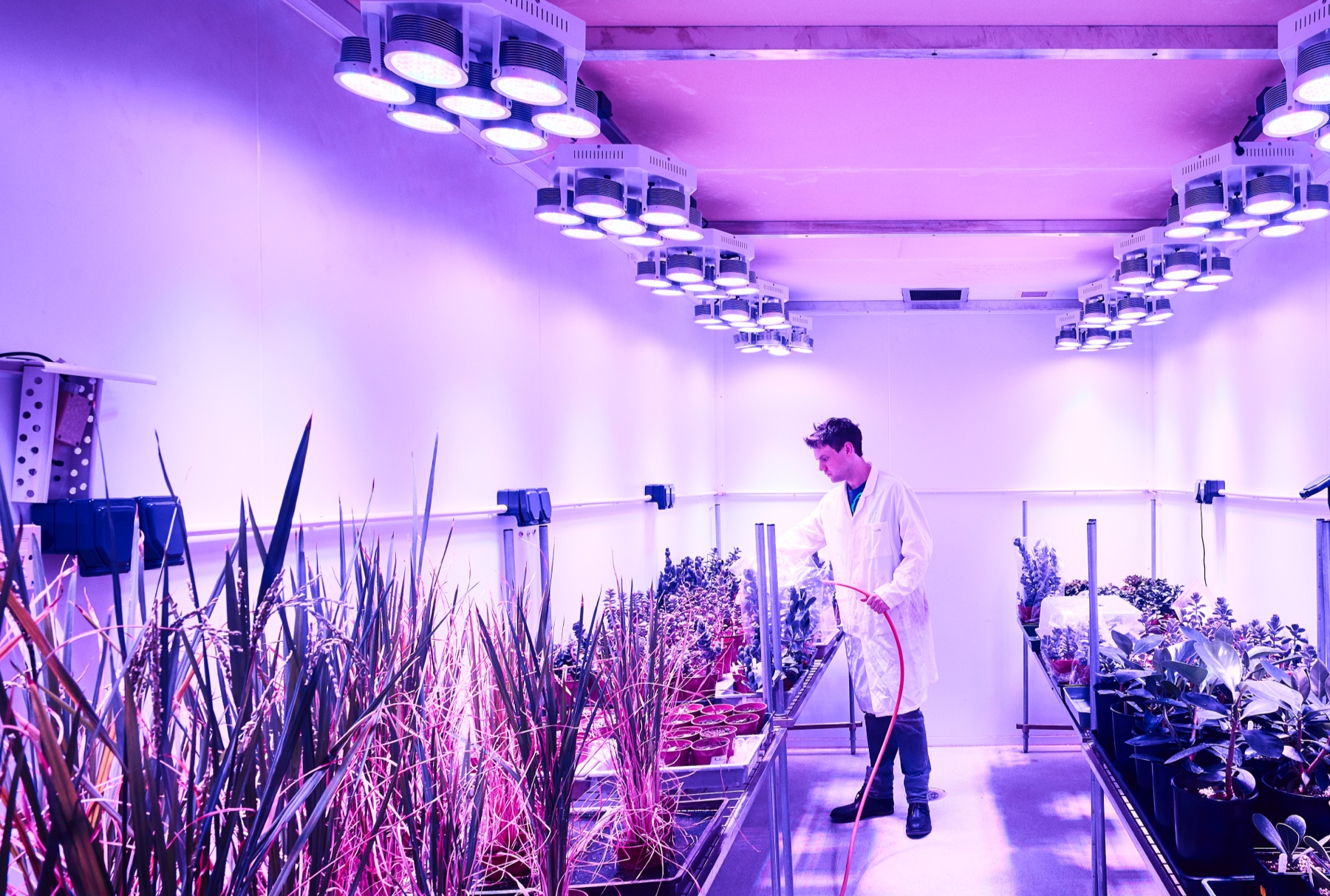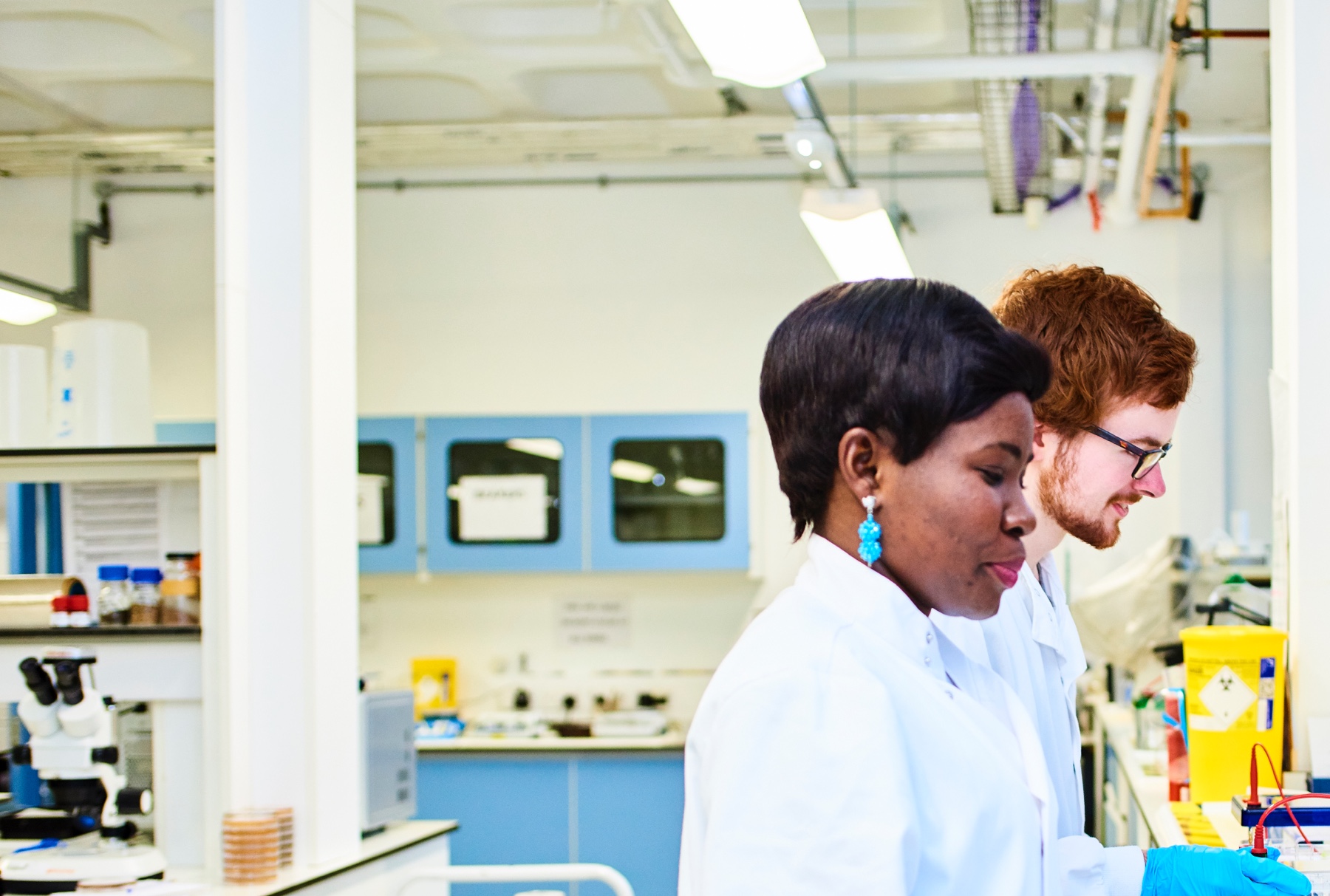Molecular Life Sciences
Our researchers study the molecular biology and biochemistry of plants, microbes, and invertebrates. This has applications in the design and redesign of biological systems.
Our research
Research within the Molecular Life Sciences theme investigates the molecular basis of plant, microbial and invertebrate life. We share expertise and methodologies in bioinformatics and genomics, cell biochemistry, imaging and microscopy, cellular and molecular physiology, synthetic biology, and protein biochemistry.
Our activities have strong biotechnological outcomes. We are active in areas such as the discovery and production of new enzymes and bioactive compounds, industrial and marine biotechnology, crop productivity and crop protection, and the development of novel biomaterials. Members of Molecular Life Sciences also contribute new tools and resources to the scientific community to accelerate fundamental research and support engineering biology efforts.
We offer excellent research and teaching opportunities for undergraduate and graduate students through our undergraduate degree programmes, and our postgraduate MSc, MRes, MPhil and PhD degrees.
You can read more about our research below.
Plant Sciences
Research in this area includes work to understand the biochemistry and regulation of photosynthesis, seed development and cell wall biosynthesis. It also tackles global challenges such as how to increase crop protection and crop productivity in the face of rising biotic and abiotic challenges.
Molecular Microbiology
Our microbiology research relates to the metabolism and biochemistry of terrestrial and marine microbes. This includes investigations into the ways in which microbes exploit their environment, the discovery of novel enzymes and new pathways for the biosynthesis of natural products.
Molecular Biology of Invertebrates
Our research focusses on invertebrates as pests, parasites and pollinators. This area includes investigating the molecular basis of invertebrate interactions with other forms of life, such as plants and microbes, as well as developing novel, biosafe pest control strategies.
Biotechnology
Underpinning our work are efforts to design and engineer biological systems to meet global challenges. This includes the design of new antibiotics, metabolic engineering for fuels and chemicals, bio-inspired multi-functional materials and new tools and methodologies that facilitate this work.

